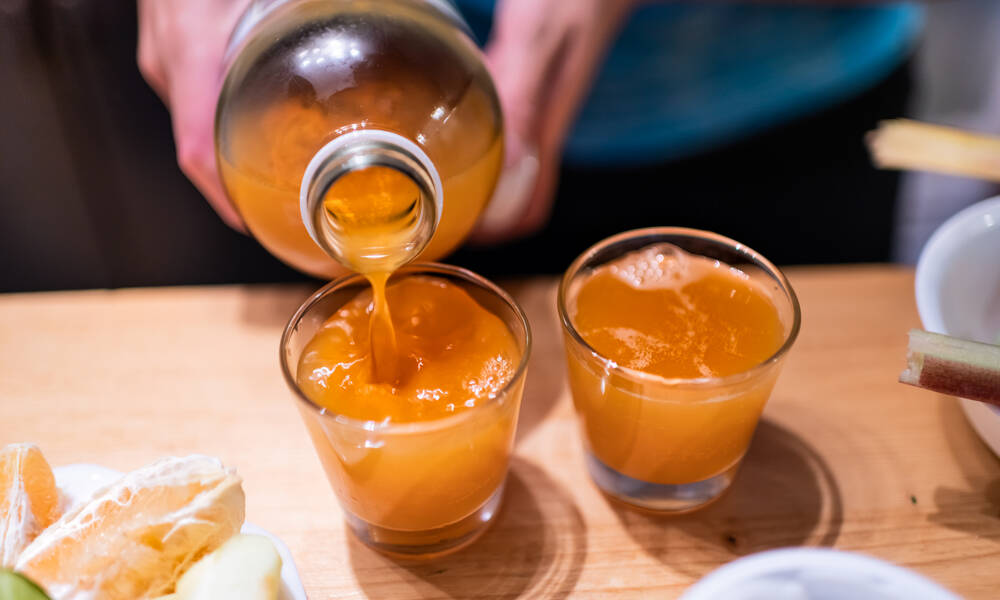
Brewers’ Code of Practice Sets Standards for Real Kombucha
Kombucha Brewers International, an industry group for the increasingly trendy tea drink, says its new code of practice will encourage manufacturers to follow basic standards for producing it.
The fermented tea drink kombucha, which naturally includes small amounts of alcohol, has benefited from a massive surge of popularity in the past few years. But what exactly makes kombucha authentic? At times, that question has led to lawsuits over labeling.
In an attempt to clear the air, an industry group is setting standards for what consumers should expect when they buy a bottle of kombucha.
Kombucha Brewers International recently released a code of practice that includes basic requirements for brewing the drink, safety and hygiene standards, and labeling rules. Makers that follow the code will receive an official seal from KBI to place on their product labels.
The code breaks down different categories of the beverage. Variants with additional flavoring, including honey, coffee, and yerba mate are also laid out, with standards for different mixes. The code also includes manufacturing standards for “processed kombucha,” for versions of the drink that may, for example, be pasteurized, filtered, or have had the alcohol removed.
“The purpose of this code of practice is to create a food safety and quality standard for kombucha producers that creates transparency for consumers to make informed choices,” KBI says. “The certification and seal program provide a high level of trust for food safety and an understanding that the product follows clear standards for kombucha manufacture.”
In comments to Food Navigator-USA, KBI President Hannah Crum said the group set defined but flexible standards that will work as the product evolves.
“It’s impossible to come up with something that everyone is happy with,” Crum said. “But what we’ve put out is really fair. It defines kombucha so that there are healthy boundaries. But the nice thing about a code of practice as opposed to a standard of identity is that we can broaden or narrow the definition based on what we learn over time and update it on a regular basis to reflect innovations and additional research.”
She added that the code will also provide a basis for a legal defense in lawsuits, which should encourage uptake.
“If [a kombucha maker] were taken to court, this is the first thing [plaintiff’s attorneys] would look for: Is there a definition of kombucha? Well, now there is. I think most brands will want to be in compliance, they will want to be transparent,” she said.
(ablokhin/iStock/Getty Images Plus)






Comments